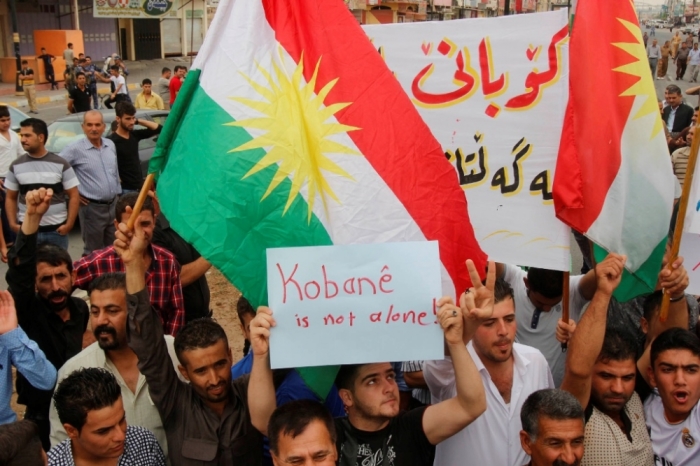Survey: 85 Percent of Arabs Hold Disdain Toward ISIS

Despite the fact that Islamic State leaders have their eyes set on expanding the caliphate outside of Iraq and Syria, a recent poll surveying respondents from seven Arab nations and refugees in Syria found that ISIS is overwhelmingly unpopular among people there.
A telephone poll, conducted by the Arab opinion index team at the Qatar-based Arab Center for Research and Policy Studies, surveyed respondents from Lebanon, Iraq, Egypt, Tunisia, Saudi Arabia, Jordan, Palestinian territory, and Syria (refugees) and found that 85 percent of its respondents view the Islamic State terrorist organization as "negative" or "negative to some extent." Only 11 percent of the respondents said they held "positive" or relatively positive views on ISIS.
The survey also found that nearly six in 10 respondents "strongly support" or "support" the U.S.-led coalition's aims to destroy ISIS, although 75 percent said they have "negative" or "negative to some extent" opinions about U.S. foreign policy in the Arab region. About one-third of the respondents said they either "strongly oppose" or "oppose" the international coalition's efforts.
Khalil Jahshan, executive director of the Arab Center for Washington, which falls under umbrella of the Arab Center for Research and Policy Studies, told the Christian Science Monitor that the survey was the first attempt to gauge the overall Arab public opinion of ISIS.
"We keep hearing there is fertile ground in Arab society for ISIL [but] there is no love lost for ISIL," Jahshan said.
The survey, which interviewed 5,100 respondents, found that the highest level of disdain for ISIS comes from Lebanon, which shares part of its eastern border with Syria. Ninety-eight percent of Lebanese respondents said they view ISIS as "negative," while one percent said ISIS is "negative to some extent" and another one percent either refused to answer or did not know.
Lebanon also had the highest percentage of respondents, 68 percent, that "strongly support" the coalition's efforts to defeat ISIS.
In Iraq, 81 percent of respondents said their view of ISIS is "negative," while an additional nine percent said their view is "negative to some extent." Among the Syrian refugees, 73 percent said they hold a "negative" view while 10 percent said their view is somewhat negative. In Iraq, only six percent said they view ISIS as "positive" or "positive to some extent," while 13 percent of Syrian refugee responders held the same views.
In Egypt, where one of the country's largest insurgent militia groups has recently pledged its allegiance to the Islamic State, 77 percent said they view ISIS as negative, while 9 percent said they see ISIS as somewhat negative.
Arabs from the Palestine had the most support for the terrorist group. Twenty-four percent of Palestinians said they have a "positive" or "positive to some extent" opinion of ISIS, while only 36 percent of Palestinians said they have a "negative" view of ISIS. Palestine is the only nation in the survey where less than 70 percent of its respondents said they had a "negative" view of the group.
Although most of the Arabs support efforts to defeat the Islamic State, only 22 percent of the respondents were confident that the coalition's efforts would succeed in their goal of defeating ISIS.
The survey additionally found that only three percent of respondents felt that their own nations benefited from the coalition's attacks against ISIS fighters, while a majority indicated that only global or regional powers such as the United States, Israel, Iran or the Syrian regime of president Bashar al-Assad stood to benefit from the coalition's anti-ISIS efforts.
With 75 percent of respondents saying they view the U.S. foreign policy in the Arab world as negative, "a majority believes that the United States should end its military and financial support for Israel and help resolve the Syrian crisis if it is to improve its standing the Arab world," the survey's analysis noted.
Jahshan said that the overwhelmingly negative view toward the U.S.' Arab policy means that it might indicate an Arab desire for the region's governments to settle its own issues without U.S. support.
"I think this refutes the theory in the U.S. that Arabs just want the U.S. to come in with the broom and dust pan and clean things up," Jahshan said.
With an error margin of plus or minus four percent, the survey interviewed 600 respondents from each country, except for the 900 Syrian refugees, from Oct. 6 to Oct. 25.




























